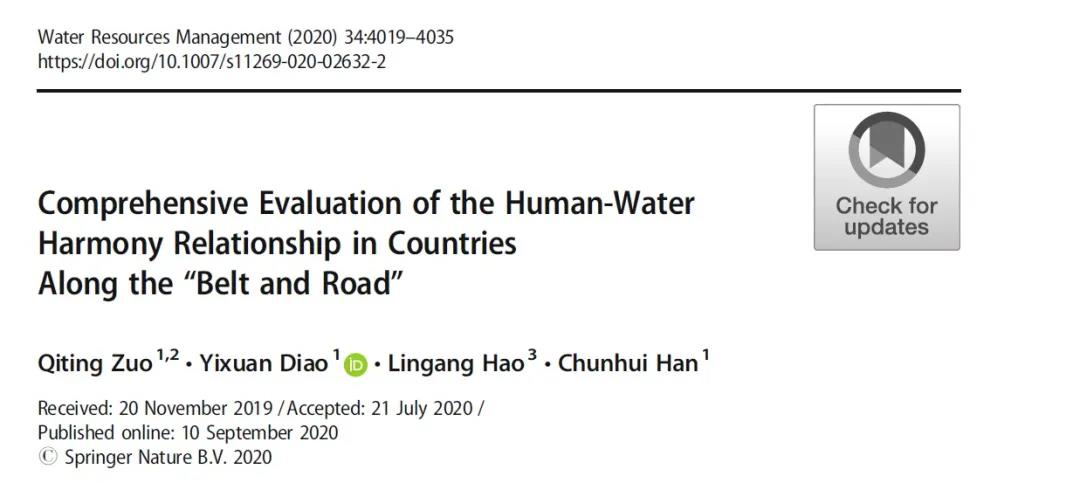QitingZuo, Yixuan Diao*, Hao Lingang, Han Chunhui.Comprehensive Evaluation of theHuman-Water Harmony Relationship in CountriesAlong the "Belt andRoad". Water Resources Management, 2020, 34(13),4019-4035.

Abstract:An accurate assessment of the harmonious relationship between human beingsandwater resources is central to conducting the comprehensive management ofwaterresources. The human-water relationship in the “Belt and Road” regioniscomplex, but there is a lack of systematic quantitative research. Aninadequateunderstanding of the human-water relationship hinders decision-makersin recognizing watermanagement priorities. To fill this gap, this paper firstselects six criteriafor human-water harmony from theperspectives of ahumanistic system and a water system. Based on thesecriteria, representativeindexes were selected, and the harmony degree equationwas used to calculate thedegree of human-water harmony in 43 countries along the "Belt andRoad" in 2002, 2007, 2012 and 2017. The results revealedthat human-waterharmony mainly exhibiteda high rate of change in developing countries, whileharmony was relativelystable in developed countries and generally higher thanthat in developingcountries. At the same time, countries in the “Belt and Road”region had differenthuman-water relationship problems, and it was necessary tosolve these problems according to their nationalconditions. This study can beused by countries to propel themselves out oftheir unique situation andunderstand the human-water relationship from an overall perspectivebyconducting a comparative analysis of different countries at the nationalscale.These results can provide a reference for solving the harmoniousdevelopmentproblem of the human-water relationship in countries along the "Belt andRoad".
摘要:准确评价人水和谐关系是实施水资源综合管理的核心。“一带一路”地区人水关系复杂,但缺乏系统的定量评价研究。对人水关系的不充分理解阻碍了决策者认识水资源管理的优先事项。为了解决这一问题,本文首先从人文系统和水系统的关系角度,选取了人水和谐的六个标准。根据这些标准,选取具有代表性的指标,利用和谐度方程计算“一带一路”沿线43个国家2002年、2007年、2012年和2017年的人水和谐度。结果表明:发展中国家人水和谐主要表现为高变化率,而发达国家人水和谐相对稳定,总体上高于发展中国家。与此同时,“一带一路”沿线国家存在着不同的人水关系问题,有必要根据各国国情解决这些问题。本研究通过在国家尺度上对不同国家进行比较分析,可以帮助各国走出自身的困境,从整体角度理解人水关系。研究结果可为解决“一带一路”沿线国家人水关系和谐发展问题提供参考。

